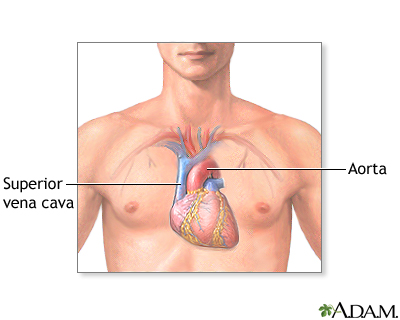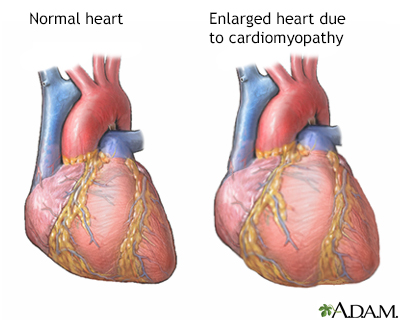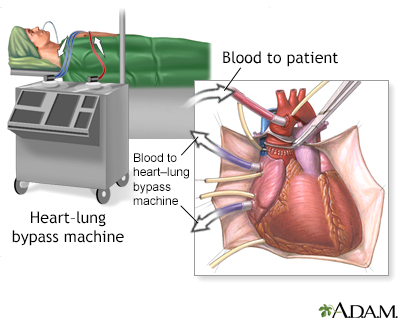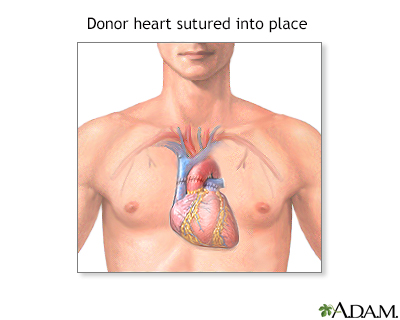Health exams for: #AGEGROUP#
The following exams, tests, and procedures are recommended for #AGEGROUPLOWER#.#FEMALETEXT#
Select a link from the list below to learn how and why each test is performed, as well how to prepare for it.

The following exams, tests, and procedures are recommended for #AGEGROUPLOWER#.#FEMALETEXT#
Select a link from the list below to learn how and why each test is performed, as well how to prepare for it.




The heart is located in the chest cavity, or thorax. It pumps blood from the lungs to the rest of the body.
The heart is located in the chest cavity, or thorax. It pumps blood from the lungs to the rest of the body.
A heart transplant may be recommended for heart failure caused by, Coronary artery disease, Cardiomyopathy (thickening of the heart walls), Heart valve disease with congestive heart failure, Severe congenital heart disease. Heart transplant surgery is not recommended for patients who have Kidney, lung, or liver disease, Insulin-dependent diabetes mellitus (IDDM), Other life-threatening diseases.
A heart transplant may be recommended for heart failure caused by, Coronary artery disease, Cardiomyopathy (thickening of the heart walls), Heart val...
Heart transplants are the third most common (corneas and kidneys are the most common) transplant operations in the U.S. (over 1,500 cases per year). A healthy heart is obtained from a donor who has suffered brain death but remains on life-support. The healthy heart is transported in a special solution that preserves the organ. While the patient is deep asleep and pain-free (general anesthesia), an incision is made through the breast bone (sternum). The patient's blood is re-routed through tubes to a heart-lung bypass machine to keep the blood oxygen-rich and circulating. The patient's diseased heart is removed and the donor heart is stitched in place.
Heart transplants are the third most common (corneas and kidneys are the most common) transplant operations in the U.S. (over 1,500 cases per year). ...
Heart transplant prolongs the life of a patient who otherwise would die. About 80% of heart transplants are alive two years after the operation. The main problem, as with other transplants, is the rejection of the new heart. If rejection can be controlled, then survival can be increased up to 10 years or more. Immunosuppressive drugs must be taken indefinitely. Relatively normal activities can resume as soon as the patient feels well enough and after consulting with his or her doctor. However, vigorous physical activities should be avoided. The major problems are the same all major organ transplants face is a shortage of donor hearts, rejection of the transplanted heart, and the cost of the surgery and post-operative care, including immunosuppressive drugs.
Heart transplant prolongs the life of a patient who otherwise would die. About 80% of heart transplants are alive two years after the operation. The ...
Review Date: 4/16/2023
Reviewed By: Mary C. Mancini, MD, PhD, Cardiothoracic Surgeon, Shreveport, LA. Review provided by VeriMed Healthcare Network. Also reviewed by David C. Dugdale, MD, Medical Director, Brenda Conaway, Editorial Director, and the A.D.A.M. Editorial team.



